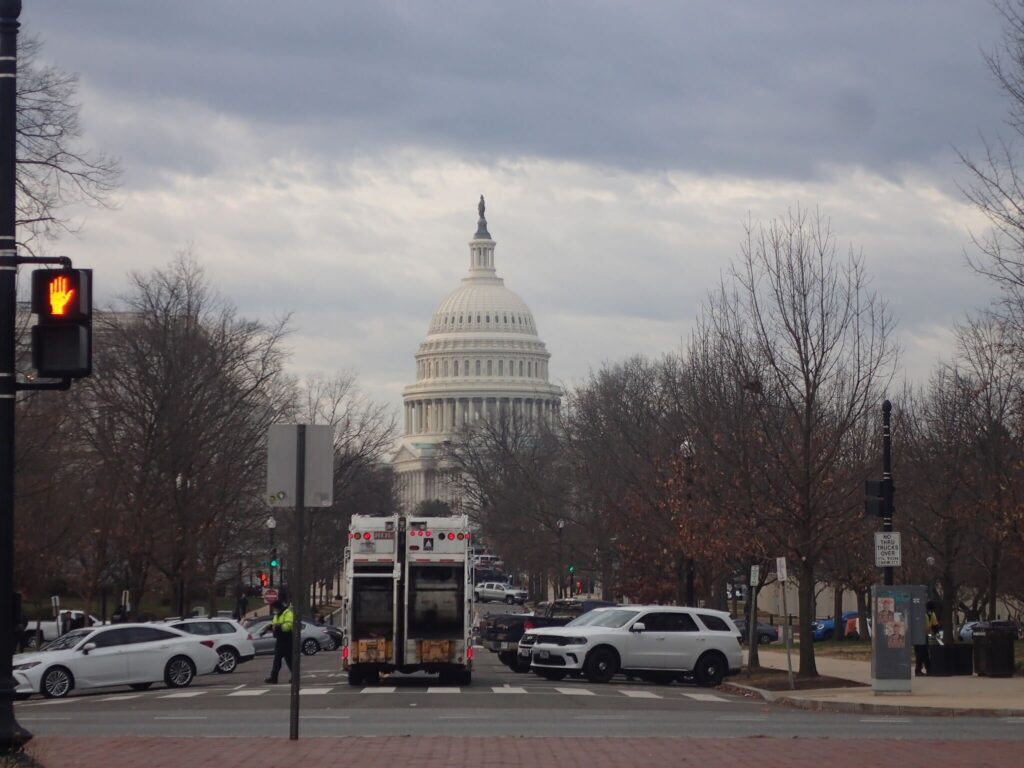As the saying goes, hell hath no fury like a budding feminist whose 2016 presidential candidate was snubbed.
I vividly remember playing dodgeball with my fifth-grade class on the morning of November 9th, venting my anger at Donald Trump, America, and the world with every missed throw. As a 10-year-old, my political knowledge was limited. My mother’s Taiwanese family immigrated to the United States in 1966, so I thought immigration was a good thing. As a young woman, I believed that women should be empowered in all the fields I wanted to occupy one day. When I went to school, I was afraid of guns, so I thought there shouldn’t be any weapons in places where I could learn.
Looking back, my righteous indignation at the injustice of life was somewhat humorous. I grew up in New York City, attended a private Quaker school, and was an active white person. Trump’s policies did not directly threaten my health. Still, that anger and frustration motivated me to stay involved in politics until I was no longer angry. My family and I attended the Women’s March in Washington, DC. I started reading the New York Times. I was looking forward to my 18th birthday, the day I could vote.
I’m 18 now, and as the election approaches, Donald Trump is back on the ballot and back in my mind. It was the same when I was in 5th grade, freshman year of high school, and now freshman year of college. .
Former President Trump ran a campaign based on anger. His populist strategy of criticizing the federal government as corrupt and incompetent and presenting himself as an outsider bent on “cleaning up” and draining the D.C. swamp was a sign of disillusionment with bureaucracy and struggle with bureaucracy. rallied millions of rural white voters who were fed up with. But President Trump’s anger is not directed at the public interest. The convenient shadow enemies he creates to inflame the anger of him and his supporters are ever-changing, from immigrants to LGBTQ+ youth to even the former vice president. His anger is not a tool, but an all-consuming entity.
In “The Bluest Eye,” Toni Morrison describes what anger feels like: Recognition of value. ”For Mr Morrison, anger is a substitute for shame. It is a way to fill the void within yourself with “existence” and “value,” and to make the insignificant things important. As Americans today feel increasingly disenfranchised and powerless, President Trump has instilled in his base a narrative of repressed freedom and oppression, creating an “us versus them” mentality in the country. are. He split the groups and pitted them against each other so that their anger could be directed against each other.
When that anger is translated into violent attacks on democratic institutions, it mutates from an emotion to a weapon. Trump supporters are driven to anger and attack those they distrust. From the Jan. 6 riot that left seven people dead to voter intimidation that required bulletproof glass in polling places, right-wing outrage is the kind of expedient response that undermines America’s security and political peace. It has become a trigger for And it’s not just the right that is seeing an increase in political violence. One of President Trump’s would-be assassins was a registered Democrat in North Carolina before losing his right to vote after being convicted of a felony.
Prime Minister Scott Morrison has acknowledged the dangers of anger, saying it is a “paralyzing emotion” that shows “powerlessness”, represents a “lack of control” and prevents us from getting anything done. Anger, if overcome, can motivate citizens in productive ways, but if left to fester, it more commonly inhibits action and inhibits participation in civic life. Currently, 31% of Americans believe their vote has “a lot” of influence, and 11% think their vote has no influence. The 2020 presidential election had the highest voter turnout ever, but only 62.8% of citizens of voting age participated. Japan’s turnout rate as a percentage of the voting age population was 31st in the world. As a country that prides itself on democratic values, our country lags far behind other countries.
Both violent anger and emotionally numbing anger are zero-sum games. Anger always needs an outlet, and it doesn’t settle for short-term victories or disappear over petty arguments. It’s not just us who feel it. Emotions are never felt in the singularity. Whether we invite them in or not, they ripple across state lines and into our lives through our buildings. We live as a community and fight as a community. And if we don’t learn to harness our anger into productive discussion, we will die as a community.
I no longer see the world through the eyes of a 10-year-old. But one thing hasn’t changed: I still feel angry. But the more I engage with my political community, campaign, and search for candidates on the phone, the less my anger feels all-consuming.
That anger isn’t just mine, it’s ours. Our duty this November is to vote. See you soon.



